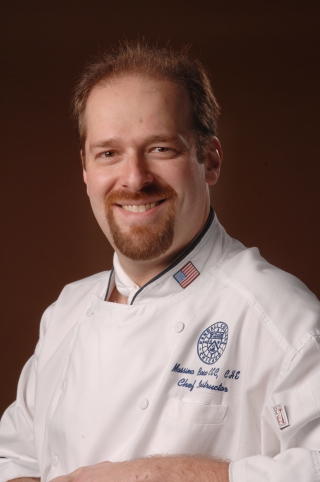
The Call to Continually Seek a Healthy Balance
04 December 2016By focusing on ourselves, our diets, sleep, exercise patterns, and time out of the classroom, we transform ourselves into better educators.
By Massimo Bosco, MA, Kendall College
At the end of a semester, it’s easy to overlook exercise, skimp on preparing healthy meals, and become consumed by final grades and discussions with students. I’ve been there. But each time I find myself in this rut (and it happens more frequently than I’d like—I’m human after all), I know I need to revise my habits.
When I see fellow faculty who look like they’re dragging, I ask a few questions: What did you eat today? Did you get out and move around a bit? Are you getting enough sleep? Checking in with our habits is something we must all do—and encourage our students to do—every few months. It not only puts us on a path to health, but it also helps improve our work as educators since we’re awake, alert and more passionate.
How do I manage my routine? Here are a few principles to follow:
Step back and analyze your habits. Are you feeling lethargic or anxious? Try to determine what may be contributing to those feelings, whether it’s what you eat or what you do physically. It is a challenge to work our hours; it’s as if we’re always in demand, but we need to make time to practice self-care. Being the best version of ourselves every day allows us to give so much more to our students.
Start with your diet. As chefs, we know that it’s easy to make food taste great by adding salt and sugar, but those empty calories also leave you deflated pretty quickly. Look at the overall dish and its main ingredients. I incorporate as many fruits and vegetables into my meals as I can. I also work to reduce my overall meat consumption. Eating whole foods gives me a lot more energy throughout the day.
Work out regularly. I practice hot yoga, which makes me stronger and more flexible, helps me spend long hours off my feet, and provides stress release. Working out, like eating well, is addictive. Making it part of my regular routine makes my body and mind crave it. When I wasn’t so concerned about exercise, I’d take off one day and that turned into a week—and then every day. I felt more and more tired. Now, I know I can’t pass up my workout routine—it gives me energy and focus.
Look for partners. I ask colleagues to take a yoga class with me. Or, in between classes, I ask them to take the stairs with me instead of using the elevator. Sharing meal ideas is equally motivating. Admit it, your colleagues have great ideas when it comes to food! I find that sharing resources and inspiration makes us all feel better throughout the week.
Seek balance. It’s easy to work around the clock. There is always an email coming in that needs an answer. There’s always another course you can prepare. You may find yourself working all hours of the evening, but what is the quality of that work? Are you going through the motions? Aim to produce quality work by continuing to seek balance between your work and your personal life. Balance is something you should continually assess. We all need mental breaks, time with our families and even the opportunity to take up a hobby. Being creative fuels our work as chefs. Set a time each night to disconnect. Give yourself time to focus on other people or projects. We can do better, more quality work for our students if we are more balanced in every aspect of our lives.
Educating future culinary professionals is indeed serious work, but you have to love what you do. Are you diluting your passion to teach by neglecting to take care of yourself? By finding a little more balance (and, as I said before, this is a process that will never stop!), you will feel better and that positivity will translate into how you teach. Your students will be happier and they’ll be able to focus more easily on your lessons. Be serious, but have fun.
Choosing to renegotiate your habits is the hardest part—but it’s easy to stick with it once you get started. Make small changes frequently. And remember, it’s always a work in progress.
Massimo Bosco, MA, a chef instructor at the School of Culinary Arts at Kendall College, knows what it’s like not only to manage his time as a faculty member, but also as a leader in prominent kitchens. In his 21 years of foodservice experience, he’s served in leadership positions at elite hotels and clubs such as the Stonebridge Country Club, Westin O’Hare, Fairmont Hotel Chicago, Four Seasons Hotel Chicago and Hotel Nikko Chicago.
Photo courtesy of Kendall College.
